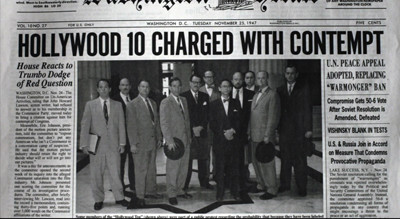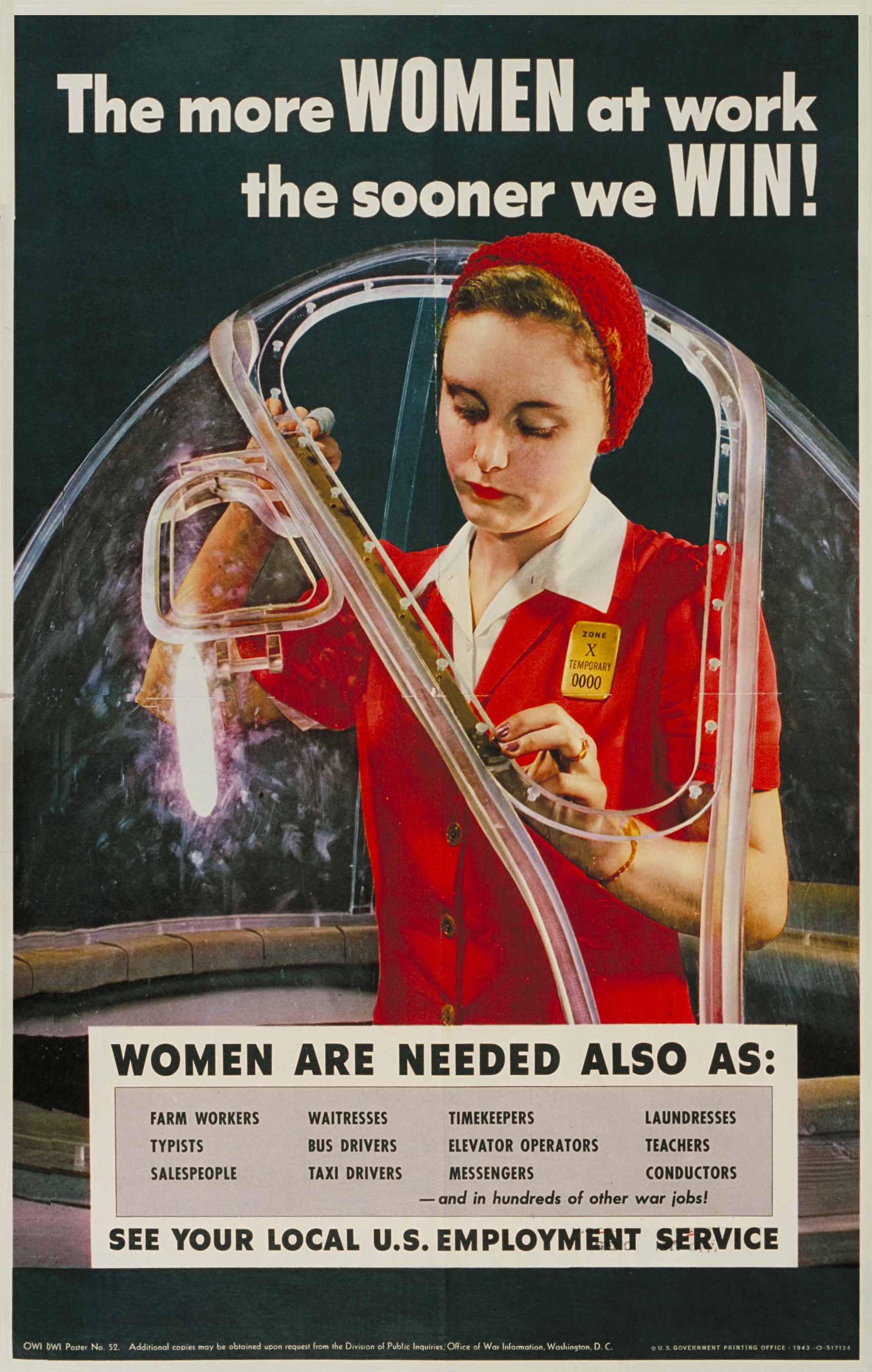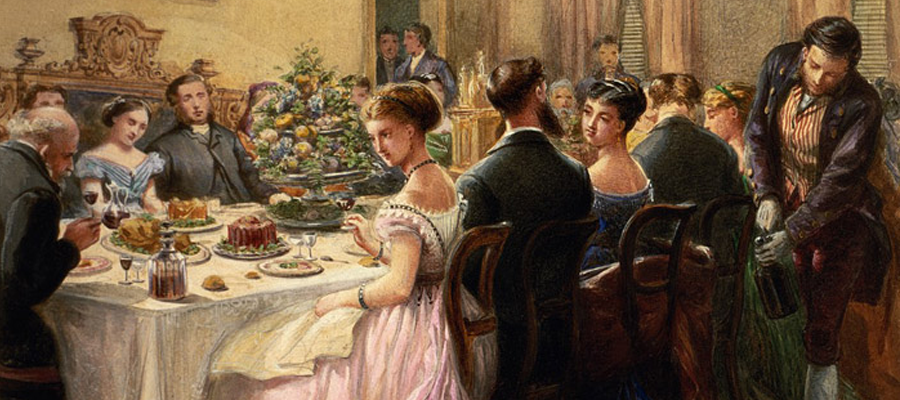Online Days and Final, April 29 – May 13 (Ch 28 and 29)
by Dr. H - April 26th, 2019
There are a total of 4 online days, as explained in the syllabus. On those days we do not meet in person. Please keep up with the reading as assigned.

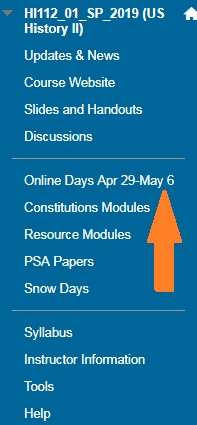
Each one opens up on Blackboard as a content folder in sequential order, under the Online Days tab. The first one opens up Saturday, April 27.
Each folder contains a single assignment that should take you about the same amount of time we would have spent in class, or less. There is a window of time to submit each one of 1-3 days long, so they don’t have to be done during the exact class period and you have some flexibility to complete them at your own pace within the assigned window.
Keep in mind that the Constitutions Module #3 is due by 11:59 pm on May 1, and the History Now Paper is due by 9:30 am on May 6. Those are separate from the daily online work.
The daily online work is worth a total of 9 points @ 3 points per day. You’ll notice this adds up to 12, not 9. This means you could skip one assignment (or day) without penalty, but you will receive up to 12 points if you complete all four days (i.e. potentially up to 3 points will become extra credit).
The final exam takes place Monday, May 13 at 8:30 am. It covers Chapters 26 – 29. Your lowest exam is dropped, so this one can be your dropped exam if you are happy with the grades on your three previous exams. Exam 4 Study Guide
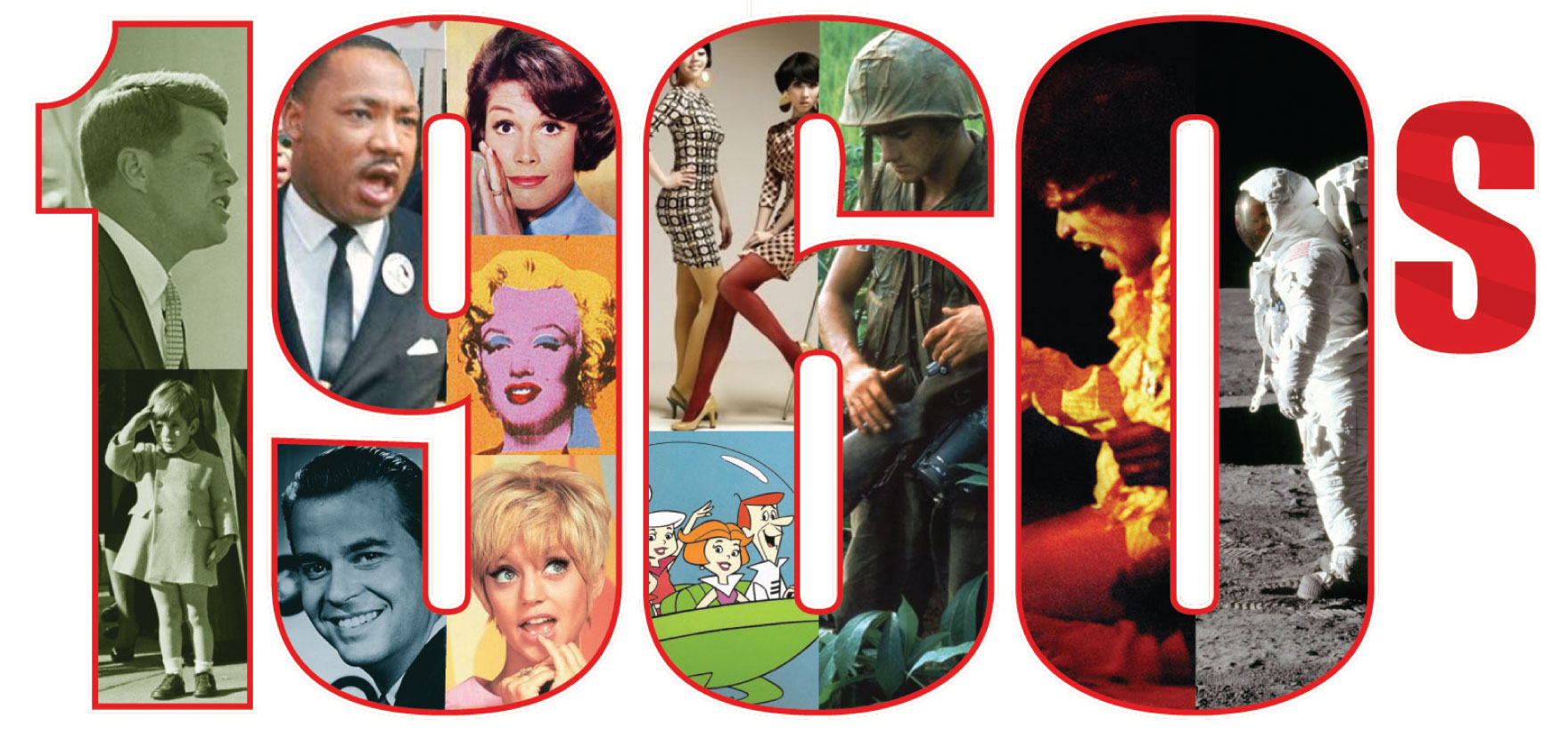
:max_bytes(150000):strip_icc():format(webp)/view-of-levittown--new-york-514867608-5ae49d2e3128340037f80e4f.jpg)
